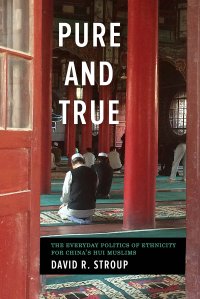
Ebook: Pure and True: The Everyday Politics of Ethnicity for China's Hui Muslims
Author: David R. Stroup
- Series: Studies on Ethnic Groups in China
- Year: 2022
- Publisher: University of Washington Press
- Language: English
- pdf
The Chinese Communist Party points to the Hui―China's largest Muslim ethnic group―as a model ethnic minority and touts its harmonious relations with the group as an example of the party's great success in ethnic politics. The Hui number over ten million, but they lack a common homeland or a distinct language, and have long been partitioned by sect, class, region, and language. Despite these divisions, they still express a common ethnic identity. Why doesn't conflict plague relationships between the Hui and the state? And how do they navigate their ethnicity in a political climate that is increasingly hostile to Muslims?
Pure and True draws on interviews with ordinary urban Hui―cooks, entrepreneurs, imams, students, and retirees―to explore the conduct of ethnic politics within Hui communities in the cities of Jinan, Beijing, Xining, and Yinchuan and between Hui and the Chinese party-state. By examining the ways in which Hui maintain ethnic identity through daily practices, it illuminates China's management of relations with its religious and ethnic minority communities. It finds that amid state-sponsored urbanization projects and in-country migration, the boundaries of Hui identity are contested primarily among groups of Hui rather than between Hui and the state. As a result, understandings of which daily habits should be considered "proper" or "correct" forms of Hui identity diverge along professional, class, regional, sectarian, and other lines. By channeling contentious politics toward internal boundaries, the state is able to manage ethnic politics and exert control.
Pure and True draws on interviews with ordinary urban Hui―cooks, entrepreneurs, imams, students, and retirees―to explore the conduct of ethnic politics within Hui communities in the cities of Jinan, Beijing, Xining, and Yinchuan and between Hui and the Chinese party-state. By examining the ways in which Hui maintain ethnic identity through daily practices, it illuminates China's management of relations with its religious and ethnic minority communities. It finds that amid state-sponsored urbanization projects and in-country migration, the boundaries of Hui identity are contested primarily among groups of Hui rather than between Hui and the state. As a result, understandings of which daily habits should be considered "proper" or "correct" forms of Hui identity diverge along professional, class, regional, sectarian, and other lines. By channeling contentious politics toward internal boundaries, the state is able to manage ethnic politics and exert control.
Download the book Pure and True: The Everyday Politics of Ethnicity for China's Hui Muslims for free or read online
Continue reading on any device:

Last viewed books
Related books
{related-news}
Comments (0)